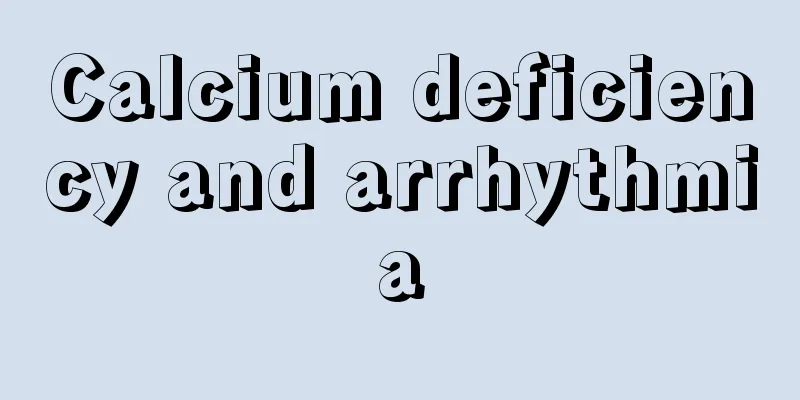Calcium deficiency and arrhythmia

|
Many people know that they should pay attention to calcium supplementation. Babies start eating milk calcium after birth, and start taking calcium supplements to grow taller when they grow up. The elderly take calcium tablets to prevent osteoporosis. Calcium supplements can be found everywhere. The impact of calcium deficiency is also great, and in severe cases it may affect arrhythmia. This article introduces in detail some signs of calcium deficiency in athletes. If encountering this situation, you must supplement calcium in time to prevent the condition from worsening. Let’s take a look. Many runners know the importance of calcium for healthy bones and teeth, but it's also essential for proper heart and muscle function. However, calcium deficiency is very common, and runners need to pay attention to some signs of calcium deficiency and supplement calcium in time. Numbness and tingling In the early stages of calcium deficiency, numbness or tingling may occur in the face, hands, feet and other parts. This is because calcium deficiency can cause muscles and nerves to become abnormally excited, leading to numbness or tingling. At this time, timely diagnosis and treatment are needed. Muscle cramps Calcium deficiency can make muscles more sensitive. If the deficiency is severe, it can cause muscle cramps, twitches and even pain. Whether walking or running, people may feel pain in the buttocks and arm muscles, especially in the armpits. In addition, calcium deficiency can also lead to low blood pressure. Brittle nails When calcium deficiency develops to a certain stage, it will affect other parts of the body. For example, nails will become dry and brittle, and will break if you are not careful. In addition, hair growth will slow down and even hair loss may occur. Bones are easily broken Most of the calcium in the human body is found in the bones, so when calcium is deficient, the bones are the first to be affected, becoming brittle and prone to stress fractures. Oral health problems Since teeth also need calcium, a calcium deficiency can lead to many oral health problems, including tooth decay, loose teeth, sensitive gums, etc. When the bones are deficient in calcium, the body draws calcium from the teeth, resulting in insufficient calcium in the teeth. Chronic fatigue Studies have found that when there is insufficient calcium in the body, it will cause frequent fatigue and drowsiness, and also lead to sleep problems such as insomnia, which in turn cause symptoms such as headaches, dizziness, inattention, and irritability. Arrhythmias Calcium has a huge impact on the heart. If calcium deficiency is severe, it will cause irregular heartbeat, affect the normal functioning of the myocardium, and cause abnormal blood transfusion function. In severe cases, this condition can lead to fainting. Heart failure Even more serious than arrhythmia is heart failure, which is caused by a lack of calcium that affects the heart muscle's contraction and pumping function. Symptoms of heart failure include shortness of breath, low blood pressure, and swelling in the legs. |
<<: What's going on with a slow heart rate and high blood pressure
>>: Normal young people's maximum heart rate
Recommend
What is liver crystallization?
The liver is a metabolic organ in the human body....
Can loose teeth be repaired? How to fix it?
Teeth are calcified bones that grow on the gums. ...
How much does it cost to pay for chemotherapy for testicular cancer
Nowadays, many men suffer from various diseases d...
What to do if there is a black mark on the buttocks
Certain parts of the bodies of many people will a...
Can pomegranate help sober up
Pomegranate is a very pleasing fruit because of i...
What is the reason for gray hair?
There are many reasons for gray hair. If gray hai...
What to do if there is a big gap between teeth
Nowadays, more and more friends are paying attent...
It is necessary to know more about the causes of laryngeal cancer
Laryngeal cancer is a malignant tumor that grows ...
What happens if the stool is black?
The feces are actually black, which makes many pe...
Brain cancer patients suffering from insomnia after surgery can use diet therapy to recuperate
After brain cancer surgery, the central nervous s...
What medicine should I take for insufficient vital energy
After being tired, many people will feel physical...
What are the symptoms of meningitis in babies?
Nowadays, the incidence of meningitis in the worl...
Lens cleaning fluid ingredients
Nowadays, with the increasing study pressure on c...
What are the methods for removing grease from aluminum pots
In our daily life, when we cook food, we will def...
What harm does salt lamp do to people
The ions emitted by salt lamps are extremely bene...









